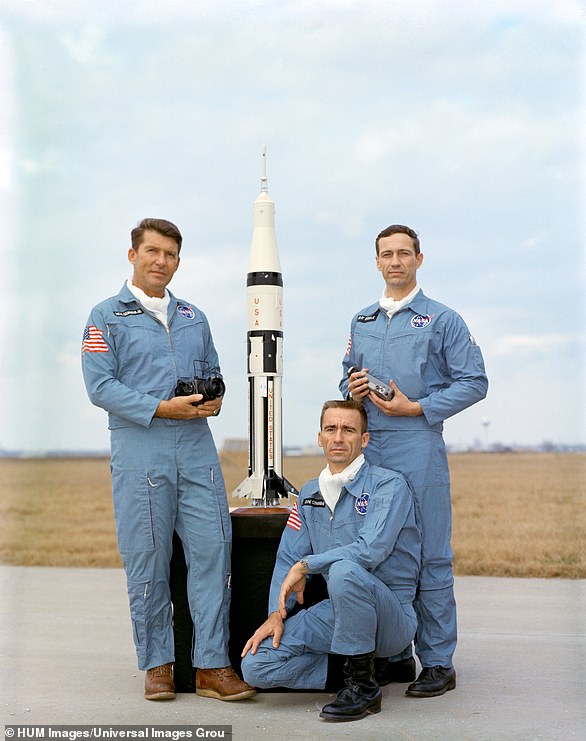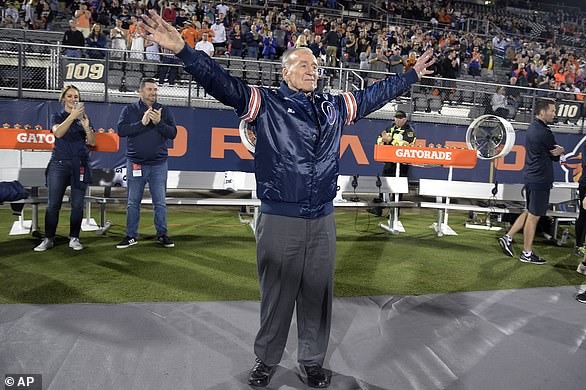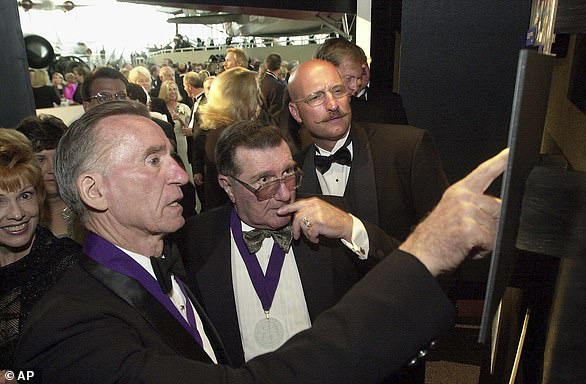Walter Cunningham: Last surviving member of NASA’s Apollo 7 mission dies at 90
>
Walter Cunningham, the US astronaut who was the last surviving member of NASA’s Apollo 7 mission, has died aged 90.
The Iowa native was lunar module pilot on the Apollo 7 mission in 1968, the first successful crewed flight of NASA’s Apollo programme.
Mr Cunningham was one of three astronauts aboard Apollo 7, an 11-day spaceflight that paved the way for the first moon landing less than a year later.
NASA confirmed his death but did not include its cause, although a family statement said he died in hospital ‘from complications of a fall, after a full and complete life’.
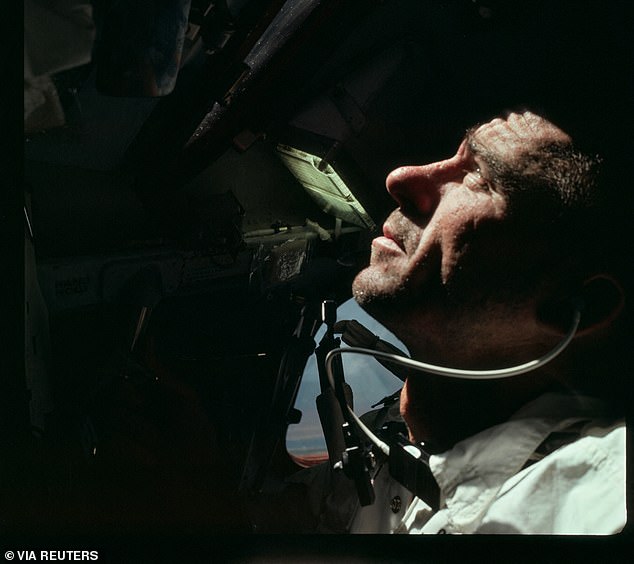
Astronaut Walter Cunningham, Apollo 7 lunar module pilot, is photographed during the Apollo 7 mission in this October 1968 NASA photo
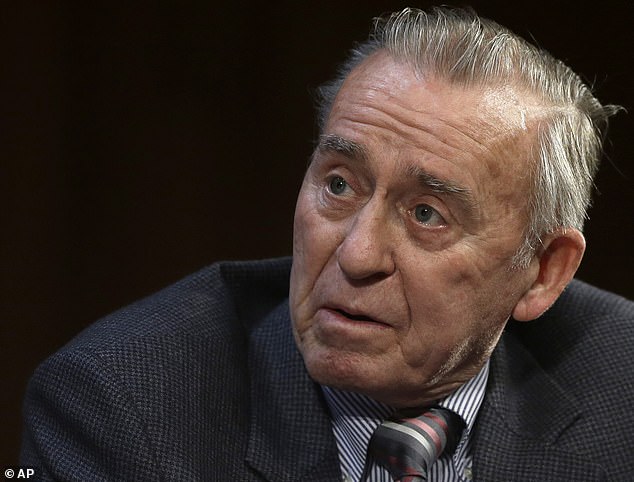

Mr Cunningham speaks on the campus of Massachusetts Institute of Technology in Cambridge, Massachusetts during a program ‘Celebrating 100 Years of MIT Aerospace’ in October 2014
In a statement, NASA Administrator Bill Nelson paid tribute to Mr Cunningham, who was also a physicist and a fighter pilot with the US Marine Corps before being selected by NASA.
Apollo 7 was NASA’s first crewed space mission since the deaths of the three Apollo 1 astronauts in a launch pad fire January 27, 1967.
‘Walt Cunningham was a fighter pilot, physicist, and an entrepreneur – but, above all, he was an explorer,’ said Nelson.
‘On Apollo 7, the first launch of a crewed Apollo mission, Walt and his crewmates made history, paving the way for the Artemis Generation we see today.
‘NASA will always remember his contributions to our nation’s space program and sends our condolences to the Cunningham family.’
Ronnie Walter Cunningham was born in Creston, Iowa, on March 16, 1932 and joined the US Navy in 1951 after studying at Santa Monica College in California.
Following his active duty, which included flying 54 missions as a night fighter pilot in Korea, he resumed his studies at Santa Monica College and then transferred to the University of California, Los Angeles (UCLA) in 1958 where he studied physics.
He also worked as a scientist for the RAND Corporation, a US non-profit organisation, before his NASA selection in October 1963.
He crewed the Apollo 7 mission with Navy captain Walter Schirra (who died in May 2007) and Air Force major Donn Eisele (who died in December 1987).
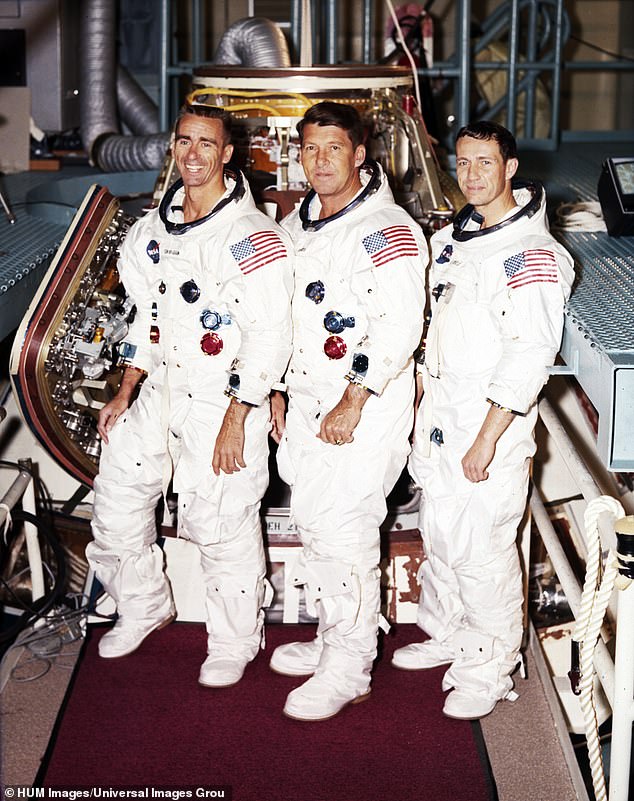

Pictured left to right, in this Apollo 7 crew portrait, are astronauts R. Walter Cunningham, Walter Schirra and Donn Eisele
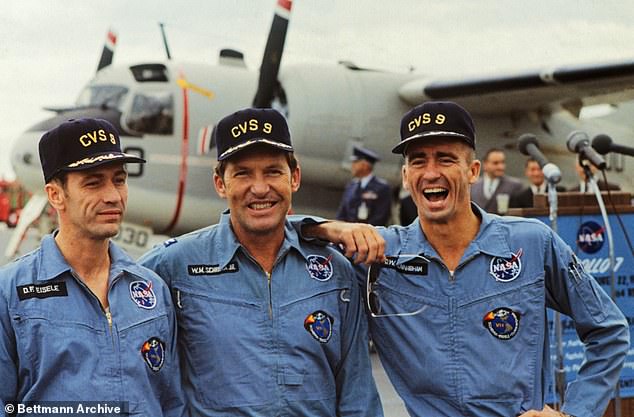

Pictured, the three astronauts of the Apollo 7 mission are all smiles following their successful splashdown and recovery on October 22, 1968. Left to right: R. Walter Cunningham, Walter Schirra and Donn Eisele
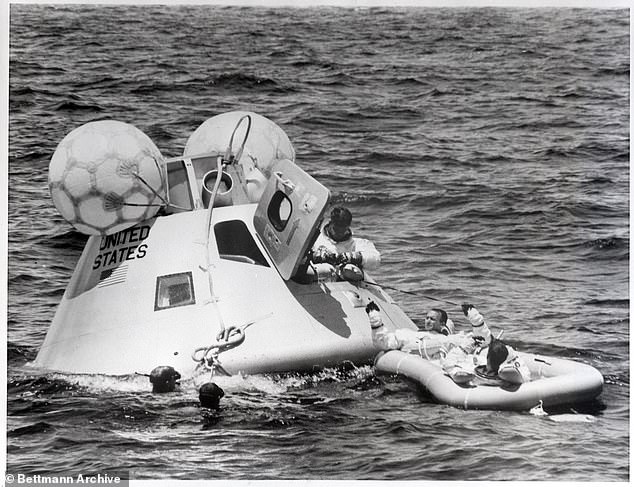

Frogmen help astronauts during egress training. Walter Cunningham and Donn Eisele are shown pulling Walter Schirra out of a space capsule onto a rubber raft
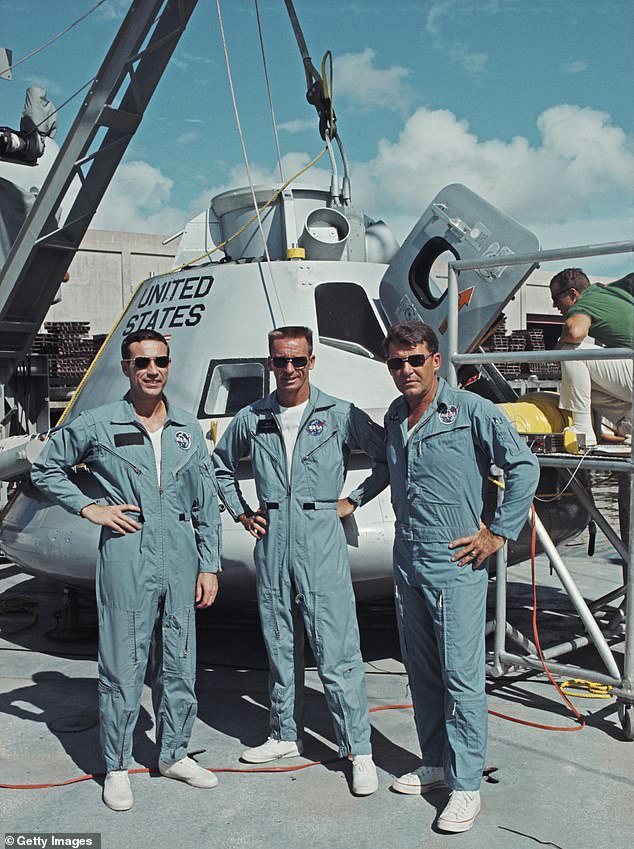

From left to right, Donn Fulton Eisele, Walter Cunningham and Walter Schirra on the deck of the ‘MV Retriever’ during training for water egress procedures from their capsule in the Gulf of Mexico, August 5, 1968
The mission launched from Cape Kennedy Air Force Station, Florida, on October 11 and splashed down in the Atlantic Ocean south of Bermuda on October 22.
The crew orbited the Earth 163 times and spent 10 days and 20 hours in space – a near perfect mission, NASA said.
Their spacecraft performed so well that the agency sent the next crew, Apollo 8, to orbit the moon as a prelude to the Apollo 11 moon landing in July 1969.
Apollo 7 astronauts also won a special Emmy award for their daily television reports from orbit, using a black-and-white television camera that was carried aboard.
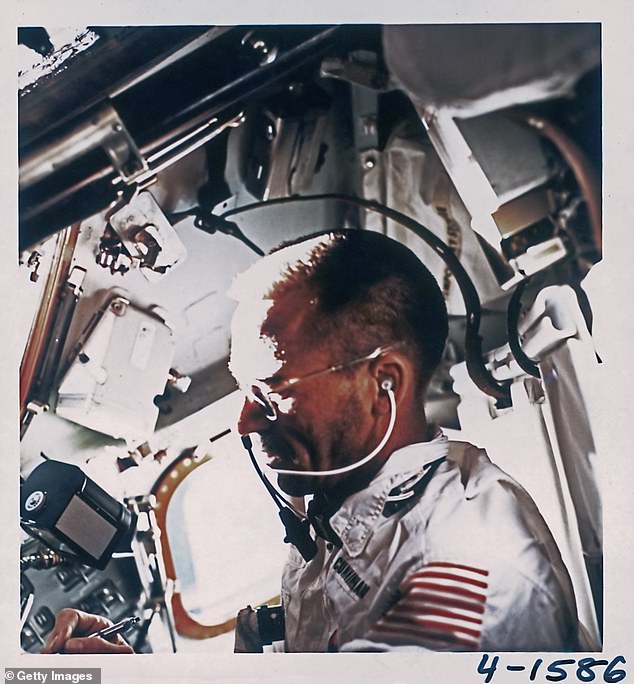

Walter Cunningham during the Apollo 7 mission, October 1968. The mission launched from Cape Kennedy Air Force Station, Florida, on October 11 and splashed down in the Atlantic Ocean south of Bermuda on October 22
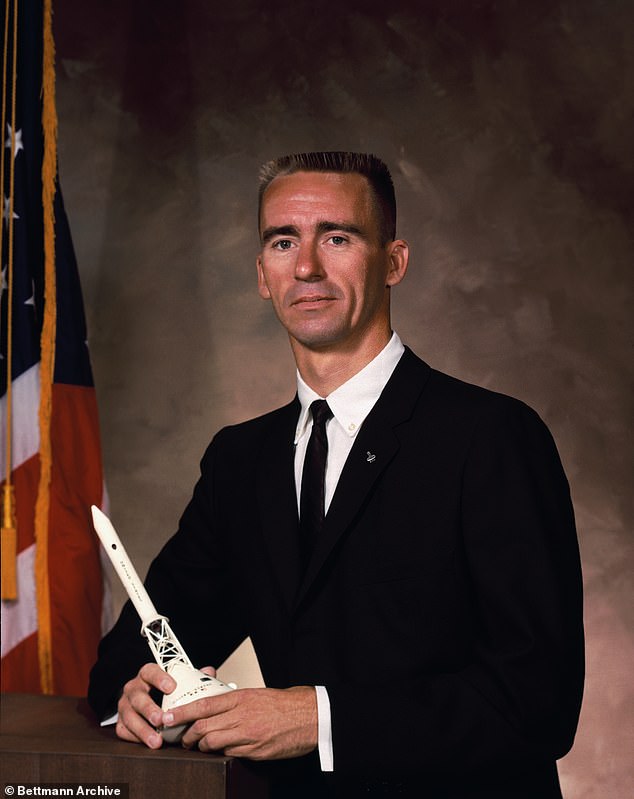

Portrait of Cunningham in 1964. Apollo 7 was NASA’s first crewed space mission since the deaths of the three Apollo 1 astronauts in a launch pad fire January 27, 1967
In an interview the year before his death, Mr Cunningham recalled growing up poor and dreaming of flying airplanes, not spacecraft.
‘We never even knew that there were astronauts when I was growing up,’ he told The Spokesman-Review.
After retiring from NASA in 1971, he worked in engineering, business and investing, and became a public speaker and radio host.
He wrote a memoir about his career and time as an astronaut, ‘The All-American Boys’, published in 1977.
He also expressed skepticism in his later years about human activity contributing to climate change, bucking the scientific consensus in writing and public talks, while acknowledging that he was not a climate scientist.
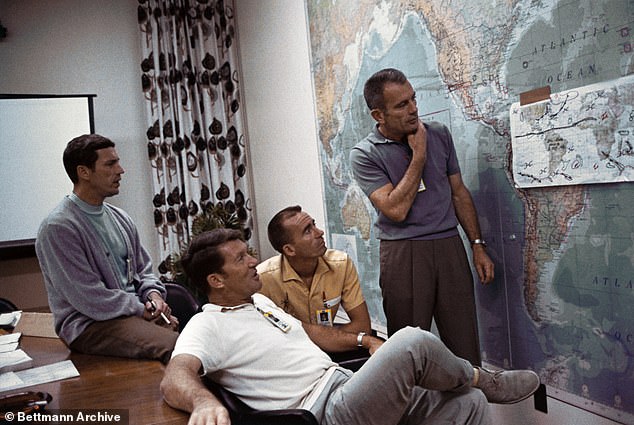

Members of the Apollo 7 crew (L-R Donn F. Eisele; Walter Schirra and Walter Cunningham) during a briefing with Deke Slayton (standing), director of Flight Crew Operations
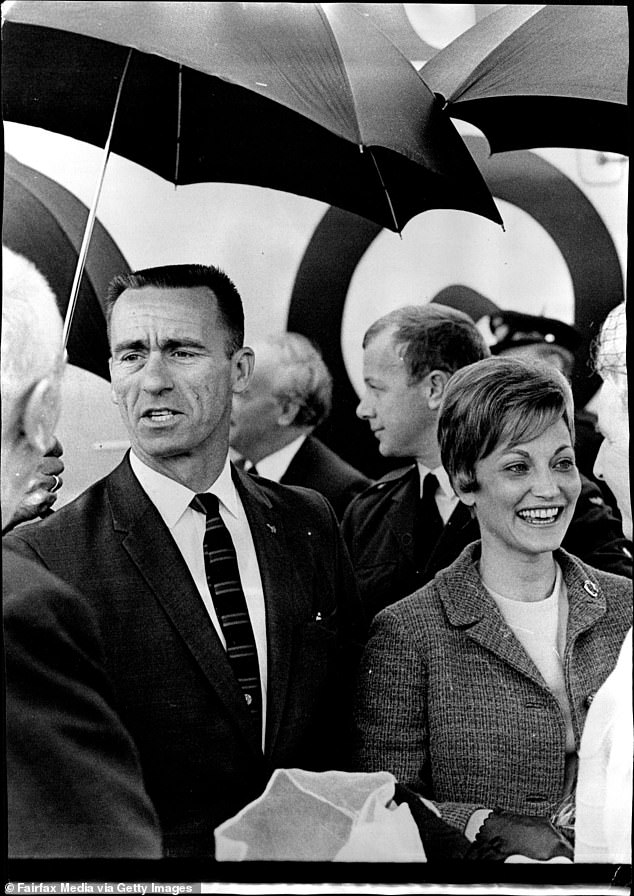

Cunningham arrives in Sydney with his wife, Loella, on May 6, 1969 – a couple of months before the success of Apollo 11
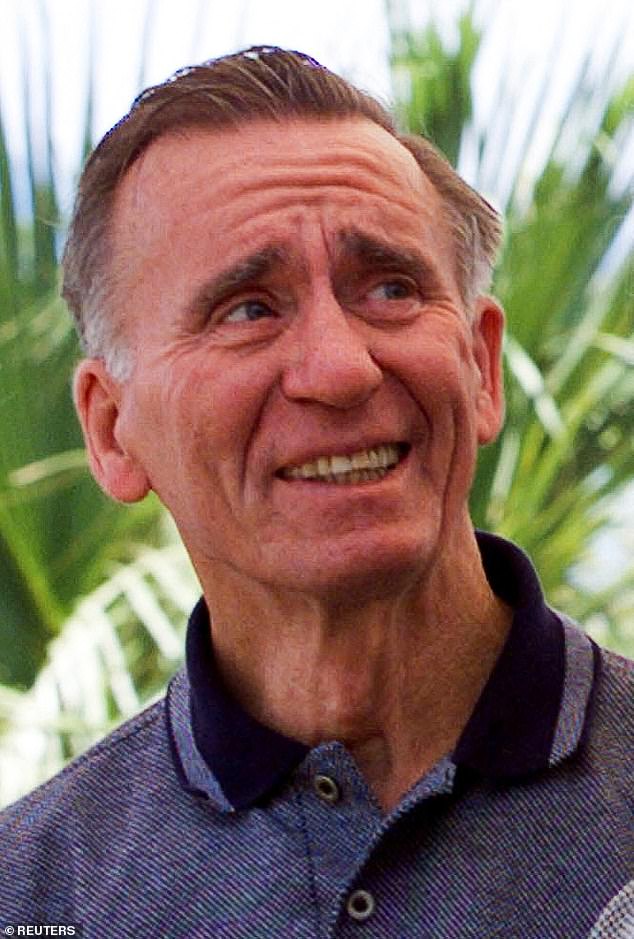

Here, Walter Cunningham attends a celebration of the Apollo 11 mission, which took humans to the moon for the first time, on the 30th anniversary of the flight, at the Kennedy Space Center in Cape Canaveral, Florida, July 17, 1999
Although Mr Cunningham never crewed another space mission after Apollo 7, he remained a proponent of space exploration.
‘I think that humans need to continue expanding and pushing out the levels at which they’re surviving in space,’ he said last year.
Mr Cunningham is survived by his wife Dot, his sister Cathy Cunningham, and his children Brian and Kimberly.
In a statement, the Cunningham family said: ‘We would like to express our immense pride in the life that he lived, and our deep gratitude for the man that he was – a patriot, an explorer, pilot, astronaut, husband, brother, and father.
‘The world has lost another true hero, and we will miss him dearly.’
Read more NASA stories here…
NASA photos show moment Artemis 1 splashed down to Earth
NASA’s Artemis 1 spacecraft breaks a record set by Apollo 13 in 1970
How astronauts celebrate Christmas in space: Out-of-this-world photos

